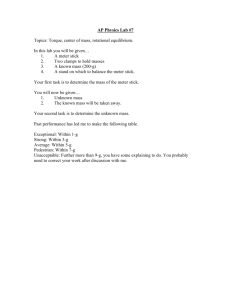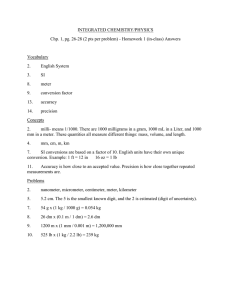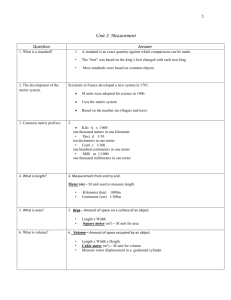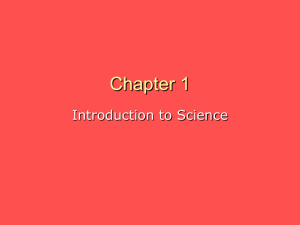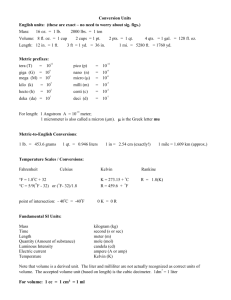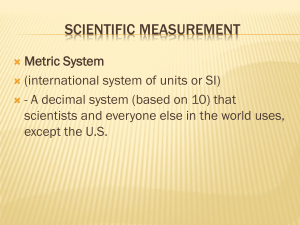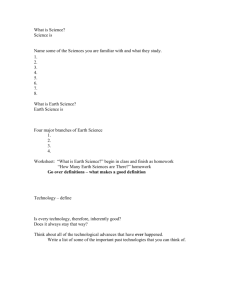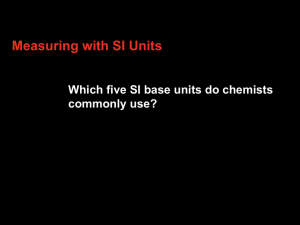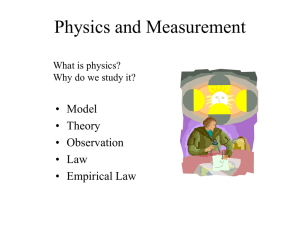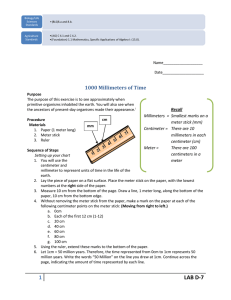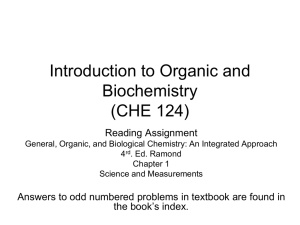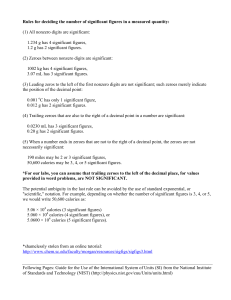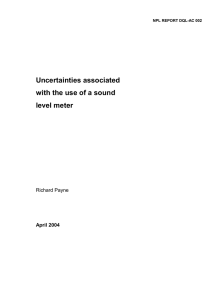Scientific Measurement
advertisement
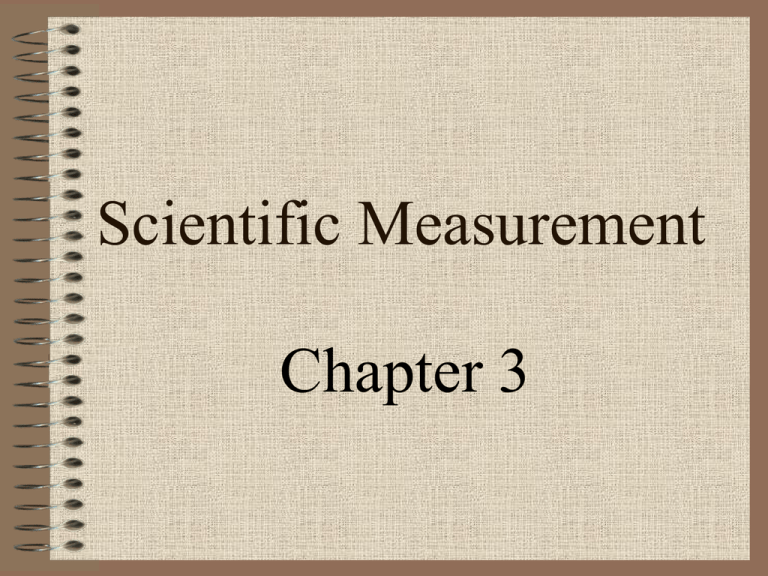
Scientific Measurement Chapter 3 3-1 The Importance of Measurement • Qualitative vs Quantitative Measurement •What color vs What mass? • Scientific Notation •Powers of Ten 3-2 Uncertainty in Measurements • Accuracy, Precision and Error • Communicate the quality of Experimental Data and Calculations 3-2 Uncertainty in Measurements • Accuracy •How close to the accepted value is the measurement? 3-2 Uncertainty in Measurements • Precision •How are the Data Grouped? –Tight vs Loose 3-2 Uncertainty in Measurements • Error = Accepted value – Experimental value • % Error = Error x 100% Accepted value Practice Problem • Suppose you compare a wooden meter stick to a certified standard meter stick and get the following data: Practice Problem • Length of wooden meter stick = 1.009 m (oops) • What should the “accepted value” be? Practice Problem • That’s right! 1.000 m • Error = accepted – experimental = 1.000 – 1.009 = -0.009 m Practice Problem • % Error = Error x 100% Accepted = -0.009m x 100% 1.000m = 0.9 % Significant Figures in Measurements • How well do you know your data? Is it •0.8m •0.75m •0.753m •0.7529m Significant Figures • All four measurements could have come from the same object measured with increasingly precise equipment. •“Degree of Precision” Significant Figures • Significant Figures show all digits directly obtained in a measurement plus the first estimated digit. Significant Figures • The number of significant figures in measurements is governed by RULES See pages 56 & 57 … beware the lowly zero, it will confuse you. Significant Figures • Exact numbers: infinite sig figs • counting numbers 1 cookie, 2 cookies … • defined quantities 1 meter = 100 centimeters Significant Figures in Calculations • It’s a different game. • You can’t know a calculated result any more precisely than your least precise term. • “Weakest Link” Significant Figures in Calculations • Rules governing addition/subtraction are –DIFFERENT – from the rules governing multiplication/division. –See pages 58-61 3-3: Units • SI = International System of Units – see Table 3.1 page 63 • Base units vs derived units. Units • SI is related to the metric system. • We generally use the metric system and its prefixes. –See Table 3.2 page 64 Units: Length • Meter • Derived units: •Area (squared) •Volume (cubed) Units: Volume • Space matter occupies • Unit cubes 3 • V= lwh = s 3 • 1 cm x 1cm x 1cm = 1cm = 1ml • 1 liter = 1,000 ml Units: Mass • Amount of matter in object • Unaffected by gravity • 1 ml water = 1 gram Units: Density • Relates mass of an object to its volume • Property of all matter • Density = mass = m – volume v Units: Temperature • SI: Kelvin scale (absolute) •unit = K (kelvin) • Metric: Celsius •unit = C (degree Celsius) • Pet peeve: There is no such thing as a “Degree Kelvin” Units: Temperature • Convert from K to C •C = K – 273 • Convert C to K •K = C + 273
